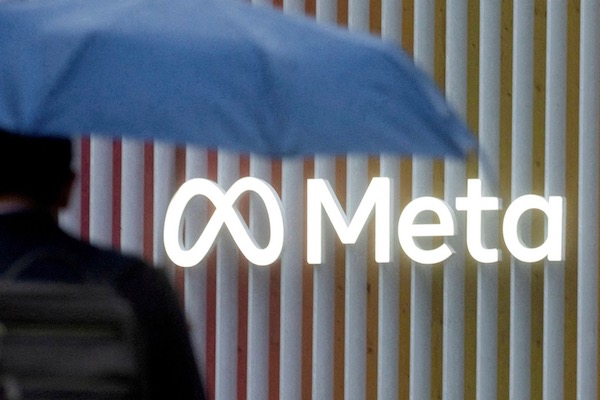Published on the 10/11/2022 | Written by Heather Wright

From Great Resignation to mass layoffs across sector…
In the space of just 12 months, we’ve gone from the Great Resignation to Quiet Quitting to Quiet Firing and mass layoffs, with Meta the latest in a long line of tech companies to announce job cuts or hiring freezes.
In Meta’s case, the company confirmed it is cutting more than 11,000 jobs – or 13 percent of its workforce – in what is the largest layoff event at a major technology company this year, and the first in Meta’s 18 years.
“We were much too optimistic about the internet economy’s near-term growth.”
While it might be shaping up to be the largest cut in technology this year, it’s by no means an anomaly even as the talent shortage rages on.
Recent months have seen plenty of talk – and action – on layoffs and hiring pauses across the sector.
Microsoft pink slipped around 1,000 of its employees across several divisions last month, with Lyft cutting 13 percent of its employees – around 650 staff – and Stripe (which just last year became the US’ most valuable startup with a US$95 billion valuation) cutting 14 percent of its staff, or around 1,100 people.
Netflix has had several rounds of layoffs, while Oracle also laid off hundreds in several rounds of job cuts over recent months, and Salesforce reportedly cut staff and implemented a hiring freeze through to January 2023.
At the end of October, Amazon announced it was pausing all hiring for its corporate work force, citing the economy being ‘in an uncertain place’. A hiring freeze had been in place since October for corporate and technology hiring in for its retail business.
Alphabet, owner of Google and YouTube, is also reducing the number of staff it hires.
And of course there’s Twitter’s now infamous Twitter roulette layoffs, post-Elon Musk’s takeover, with 3,700 – or 50 percent of the workforce – unceremoniously laid off and staff forced to check personal or work emails to find out whether they were staying or going. If the email arrived on your Twitter account, your job was spared. For those receiving emails via their personal account the news wasn’t so good.
Within days Twitter was reportedly asking some of those laid off to return to the company.
Business information database Crunchbase says as of late October, more than 52,000 US tech sector workers had been laid off. With around two dozen US tech companies announcing layoffs last week – including Twitter, Stipe, Lyft and Chime – those numbers are rapidly increasing.
Local tech businesses haven’t been exempt either with companies from BNPL provider Klarna to Airtasker, crypto exchange Swyftx and even unicorn Linktree cutting staff this year.
The layoffs come as the tech industry suffers a severe slowdown after years of riding high with record profits and growth – including over the pandemic years when WFH aided tech and the companies’ stocks lifted the US stock market.
Like many tech companies, Meta has been hiring aggressively as its business was bolstered by the pandemic and a surge in social media and online use and e-commerce from locked-down consumers around the world.
“Many people predicted this would be a permanent acceleration that would continue even after the pandemic ended,” Meta CEO Mark Zukerberg says in his message to employees.
“I did too, so I made the decision to significantly increase our investments. Unfortunately, this did not play out the way I expected.”
The global economic downturn, soaring inflation, rising interest rates and increasing scrutiny of big tech in particular and the accompanying regulatory pressure is putting the squeeze on companies everywhere.
Zuckerberg notes that not only has online commerce returned to prior trends, but the macroeconomic downturn, increased competition and advertising losses have caused a much lower revenue than expected.
For social media companies like Meta’s Facebook and Instagram, there’s been a sharp decline in digital advertising. Alphabet’s recent quarterly earnings announcement also showed a decline in advertising sales, with Twitter also losing advertisers.
Last week Musk said the company had seen a ‘massive’ drop in revenue as increasing numbers of advertisers – including big names such as General Mills and Volkswagen Group –paused their spend with the company following his US$44 billion acquisition of the platform.
Meanwhile, back at Meta, a dramatic 52 percent reduction in profits in the third quarter and a weak fourth-quarter outlook saw shares plunge 25 percent, wiping $89 billion from the company’s market capitalisation, in one of the most dramatic devaluations seen on Wall Street this year. Though let’s be clear here, even with that plunge, the company recorded profit of US4.4 billion. For the quarter.
Nonetheless the company has lost more than 70 percent of its value this year alone. Once worth more than a trillion dollars, it’s now valued at $256 billion
Its Facebook platform, is losing younger users, and it’s facing rising competition from the likes of TikTok.
Changes to Apple’s privacy policies, making it harder for platforms and apps to track users across other apps and websites, are also biting with Meta claiming earlier this year that the changes will cost it $10b this year.
Then there’s the metaverse aspect. The company has bet big on the nascent, still to be clearly defined technology.
The Wall Street Journal, noted recently that investors have been spooked by the company’s spending – including US$15 billion committed to its VR/AR, and metaverse, division, Reality Labs. Reality Labs revenue halved in Q3 to $285 million, with losses up from $2.6 billion a year ago to $3.7 billion and the company expecting operating loses to continue to grow next year.
In a note to Stripe staff which perhaps sums up much of the current sentiment in the tech sector, Stripe CEO Patrick Collison said “We were much too optimistic about the internet economy’s near-term growth in 2022 and 2023 and underestimated both the likelihood and impact of a broader slowdown.”



























